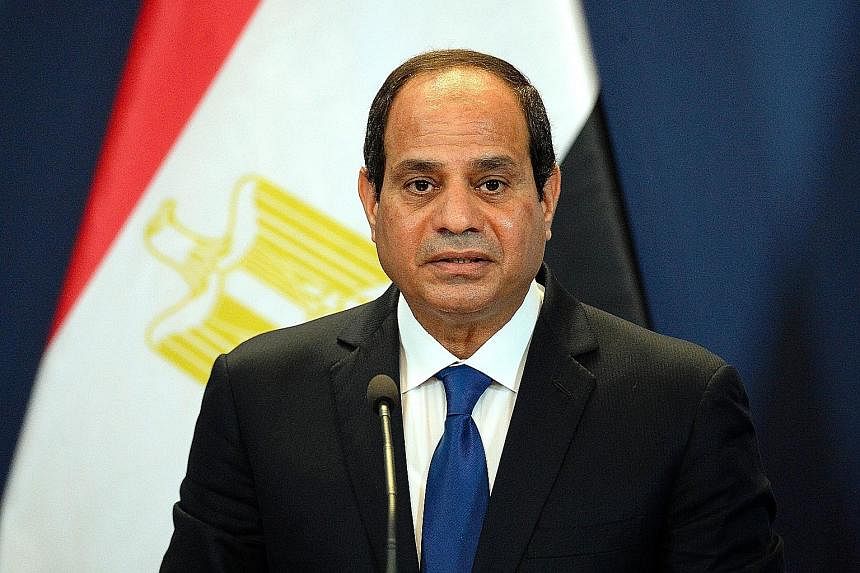CAIRO • Two years after President Abdel-Fattah el-Sisi led a military takeover promising to restore order and security in Egypt, he faces a rising Islamist insurgency that has shaken the stability of this most populous Arab state, a key ally of the United States.
Just two days after militants assassinated Egypt's top prosecutor on a Cairo street, the military on Wednesday deployed F-16 fighter jets and helicopters to beat back a coordinated assault in the northern Sinai by a militant group affiliated with the Islamic State in Iraq and Syria (ISIS). Egyptian soldiers were killed, police officers were trapped in their posts, ambulances were paralysed by booby-trapped roads and residents were warned to stay indoors by militants roaming on motorcycles.
The assassination of Mr Hisham Barakat on Monday was the first time since the start of the insurgency nearly two years ago that the militants had killed a senior government official. The authorities said Mr Barakat was killed by a remote-controlled car bomb placed along the route that his convoy travelled every day.
No one has yet claimed responsibility for the bombing, but analysts said it was possibly the work of one of the new Islamist militant groups that have framed their attacks as revenge for arrests and prosecutions by the government.
In Sinai, the scale and complexity of the ISIS-linked group's attack far exceeded any of its previous strikes there, raising the possibility that it has begun to coordinate more closely with the ISIS leadership based in Syria, experts said.
More broadly, even as Mr Sisi has pressed to marginalise mainstream Islamists such as the Muslim Brotherhood - with the authorities outlawing the group, jailing thousands, sentencing hundreds to death and using lethal force to shut down protests - he has faced growing opposition from more violent Islamists vowing retaliation for the government crackdown.
This failure to tamp down violence and restore order has undercut Mr Sisi's ability to prop up the second pillar he promised to restore: the economy.
The vital tourism industry faces new threats from militants just as the government had begun to predict a recovery. The economy remains deeply dependent on tens of billions of dollars a year in aid from Persian Gulf monarchies.
At the same time, political life is frozen, with elections promised two years ago yet to be scheduled. And the drumbeat of attacks by militants is fraying the public's nerves.
As the security crises mounted this week, though, there was little evidence the government would change course. Officials pushed for restrictive new laws, including anti-terrorism legislation and amendments to speed up criminal sentences, including executions. And in an escalation of the government's war on the Brotherhood, police gunned down nine members in a Cairo apartment on Wednesday, saying they had violently resisted arrest.
"Why is it that they haven't figured out that this is not working?" said Mr Michael Hanna, an Egypt expert at the Century Foundation in New York, speaking of the counter-insurgency strategy. "Security is deteriorating. The government's strategies, operations and tactics in Sinai are a failure."
NEW YORK TIMES

